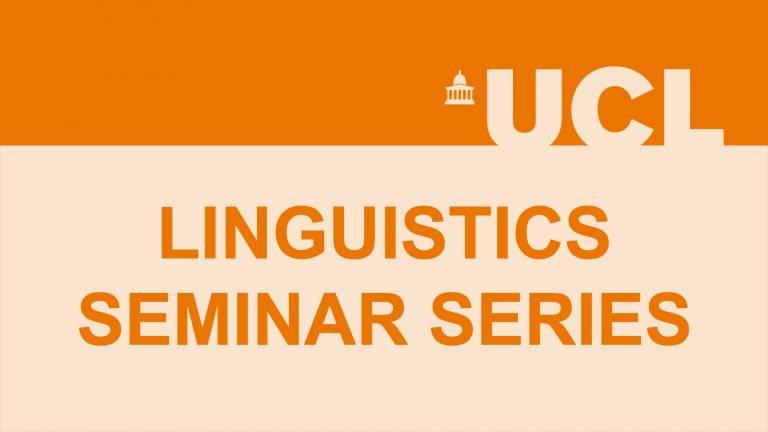Linguistics Seminar Talk - Anne Reboul
14 December 2022, 3:00 pm–5:00 pm

Note this event will now be online in Zoom.
Event Information
Open to
- All
Organiser
-
Richard Jardine – UCL Linguistics
Monkey pragmatics and the evolution of language
One of the difficulties in working on language evolution is that language does not fossilize so we don’t know which species, if any other than modern humans, had it in the hominin lineage. The only thing that we know for sure is that, in present times, it is a species-specific ability. But while language is unique, communication is rife. And language being used in communication, it seems fairly natural to seek its origins in whatever pragmatic abilities we share with other animals, and notably other primates. In terms of language evolution, this would be a communication first, language afterwards as an adaptation to communication hypothesis. This raises the question of monkey pragmatics: what is it and who has it?
The first thing to note is that, by comparison to language, non human primate (NHP) communication systems are very impoverished: the repertory of different calls is between 30 and 40, and few calls are referential. Those that are are usually alarm or food calls and constitute a small part of the calls. Additionally, the calls are phylogenetically inherited, not ontogenetically acquired as are words in natural languages.
Until recently, it was thought that there was no pragmatics involved in NHP communication, which was seen as entirely codic, and not dependent on informative intentions, as calls were produced independently of the informative state of the audience. Recently, however, it was shown that chimpanzees take into account the informative state of their audience before alarm calling for snakes. Cheney and Seyfarth documented that social calls in baboons are interpreted relative to background knowledge, in other words, that they are context-sensitive in a sense that recalls unarticulated components in linguistic communication. Schlenker et al. argued that some alarm calls in Campbell’s monkeys are context-dependent in a sense that recalls pragmatic enrichment in human language (and there is some experimental evidence for that analysis). Interestingly, there is also some evidence for the existence of Zipf law (a universal linguistic law) in chimpanzee gestural communication.
In my talk, I will present and discuss these data, arguing that, while investigations in NHP communication systems are of paramount importance for discussions on the evolution of language, and while, chronologically, it is clear that communication evolved a long time before language, this does not mean that communication as such triggered the emergence of language. Apart from the scala naturae flavor of such an hypothesis (i.e., communication had to culminate into language, a human-specific communication system), there is no reason to think that language is necessary for communication: on the reverse, the multiplicity of communication systems in nature shows that language, if it is a communication system, is just one among many others. And the existence of some pragmatic competence in NHP shows that pragmatics goes with communication (not exactly an earth-shattering discovery). On the other end, and this will be my conclusion, what monkey pragmatics shows, notably through Cheney and Seyfarth’s work, is that there may be a language of thought in monkeys, which, while very far from being as complex as human LoT, is articulated in a propositional or proto-propositional way. This would argue for a rather Chomskyan conclusion: human language evolved primarily for thought, and externalization came as an exaptation for communication. Monkey pragmatics exploits whatever LoT monkeys have, enabling monkeys to successfully communicate relatively complex content with very limited communication systems.
About the Speaker
Prof Anne Reboul
Senior Researcher at CNRS at the Laboratory of Cognitive Psychology
More about Prof Anne Reboul Close
Close

